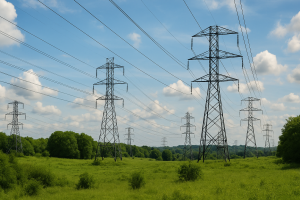Jakarta—The government is considering cutting energy subsidies by Rp 67.1 trillion by 2025. This step is taken to improve budget efficiency and not solely to fund the free lunch program proposed by President-elect Prabowo Subianto.
Finance Minister Sri Mulyani Indrawati explained in the APBN Kita press conference on Tuesday, May 28, that this subsidy reform is part of the 2025 Macroeconomic Framework and Fiscal Policy Principles (KEM-PPKF). “The decline in subsidy spending since the beginning of this year is largely due to the reduction in energy subsidies, particularly from fuel commodities,” she said.
The subsidy reform plan will raise electricity tariffs for wealthy household customers and control subsidy recipients for 3-kilogram LPG, Pertalite, and diesel fuel.
The head of the State Budget Policy Center, Wahyu Utomo, stated that subsidy reform is carried out in stages, considering people’s purchasing power, economic conditions, and the right momentum.
During January-April 2024, the realization of state budget subsidy disbursements reached Rp 51.8 trillion, down 16.4 per cent from the same period last year. Of this amount, IDR 42.4 trillion were energy subsidies, and IDR 9.4 trillion were non-energy subsidies.
Meanwhile, President Joko Widodo emphasized that the use of fuel subsidies will be evaluated based on the country’s financial condition. “Everything is seen from the country’s fiscal. Capable or incapable, strong or not strong. The oil price is up to how high,” Jokowi said in an official statement when giving a speech at the Inauguration of Towards Future Ansor at Istora Senayan, Jakarta.
Head of BPH Migas Erika Retnowati confirmed that the Pertalite quota will still be maintained despite the subsidy reduction plan. “The projected Pertalite quota in 2025 is 31.33 to 33.23 million kiloliters,” Erika said in a working meeting with Commission VII of the House of Representatives.
President-elect Prabowo Subianto also revealed a strategy to fund the free lunch program. “We have studied this. We have calculated the numbers, and we are confident that we will be able to realize that,” Prabowo said at the Qatar Economic Forum event in Doha.
However, economists warn that cutting energy subsidies could hurt people’s purchasing power. “In general, there will be a potential decline in purchasing power. When it is implemented, economic conditions and people’s purchasing power do not improve,” said Executive Director of the Center of Reform on Economics (Core) Mohammad Faisal. (Hartatik)















